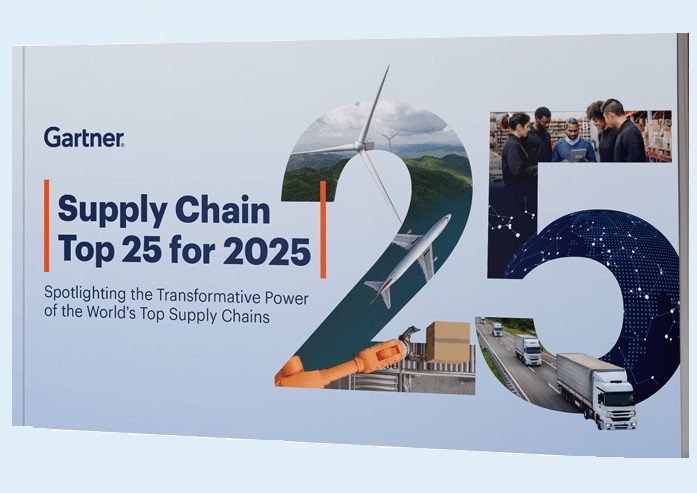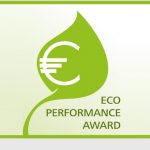Supply Chain (SCM/SCE)
Supply Chain Management (SCM) Software, Supply Chain Optimisation, Supply Chain Execution, hardware transport, supply-chain, distribution software, freight software and load planning in manufacturing and supply chain applications.Gartner Announces 2025 Rankings of the Global Supply Chain Top 25

Gartner, Inc. has announced the results for the 2025 Global Supply Chain Top 25, which recognizes leading supply chain organizations and identifies the underlying trends that drove their performance. Schneider Electric retained its top position in the rankings for the third consecutive year, while NVIDIA improved its position to land second in this year’s rankings (see Figure 1).
“This year, leaders are differentiating themselves from the pack by integrating the latest AI, developing autonomous operations and stewarding resources,” said Simon Bailey, VP Analyst with the Gartner Supply Chain practice. “Leading supply chains clearly tie sustainability to fundamental business outcomes, such as cost optimization, and risk mitigation. As a result, we are seeing many examples of water stewardship and circular innovation.”
Schneider Electric launched a new three-year transformation journey oriented around four pillars: people, planet, customers and performance. As part of this new program, the company has already made significant strides in industrial automation, integrating advanced technologies such as AI.
“Schneider Electric’s innovative culture has embraced AI in a manner that embraces employee ideas for use cases, with guidance from supply chain leaders on the highest priority areas to apply the technology for customer, revenue and productivity gains,” said Bailey. “This ensures both a collaborative and strategic approach to AI deployments.”
The Gartner Supply Chain Top 25 recognizes the outstanding, long-term supply chain excellence, maturity and leadership of a handful of companies through the Masters category. The Masters are recognized with their own distinguished category. They remain part of Gartner’s annual evaluation. To maintain Masters status, they must attain one of the five highest composite scores for all companies for at least seven out of the last 10 years.
Amazon, Apple, P&G and Unilever all retain their Masters category status this year.
Figure 1. The Gartner Supply Chain Top 25 for 2025
| Rank | Company | Composite Score |
| 1 | Schneider Electric | 5.81 |
| 2 | NVIDIA | 5.66 |
| 3 | Cisco Systems | 5.08 |
| 4 | AstraZeneca | 4.83 |
| 5 | Johnson & Johnson | 4.64 |
| 6 | L’Oréal | 4.27 |
| 7 | Colgate-Palmolive | 4.17 |
| 8 | Lenovo | 4.06 |
| 9 | Microsoft | 4.05 |
| 10 | Danone | 3.97 |
| 11 | Nestlé | 3.87 |
| 12 | Diageo | 3.87 |
| 13 | Walmart | 3.83 |
| 14 | The Coca-Cola Company | 3.68 |
| 15 | Siemens | 3.46 |
| 16 | Novartis | 3.08 |
| 17 | General Mills | 3.08 |
| 18 | PepsiCo | 2.92 |
| 19 | Heineken | 2.90 |
| 20 | HP Inc. | 2.84 |
| 21 | Sanofi | 2.83 |
| 22 | JD.com | 2.76 |
| 23 | BMW | 2.74 |
| 24 | GSK | 2.70 |
| 25 | Intel | 2.68 |
Composite score:(Peer score x 25%) + (Gartner expert score x 25%) + (ROPA score x 5%) + (Change in ROPA score x 10%) + (Revenue growth score x 10%) + (Inventory turns score x 5%) + (ESG points x 20%)
Source: Gartner (June 2025)
In 2025, the Top 25 and Masters companies embraced three macro trends:
Agentic AI
As organizations continue to embrace the transformative potential of AI within their supply chains, the next frontier of innovation is emerging in the form of agentic AI. Agentic AI extends the capabilities first introduced by generative AI (GenAI), by autonomously making decisions and executing actions to achieve its goals without constant human intervention. By integrating the creative aspects of GenAI with the problem-solving approaches of traditional AI, agentic AI is enabled to conduct complex tasks in dynamic environments, designed to deliver autonomous supply chain decision-making and execution.
Agentic AI can be deployed across supply chain functions to support real-time sensing, decision-making, and execution. Some examples where agentic AI can potentially transform the function include dynamic demand forecasting, supplier selection and route optimization.
Autonomous Operations
Among advanced supply chain operations, the distinction between basic automation and the transformative potential of autonomous operations is becoming increasingly pronounced. While automation handles separate processes, autonomous operations synchronize many activities, leading to significant improvements in supply chain productivity.
By taking over tasks including monitoring and making process adjustments, autonomous operations free employees from routine work and improve safety by limiting work in hazardous areas. Autonomous operations improve business performance by automating important decisions and actions. The systems utilize human input to keep decisions consistent and help reduce bottlenecks caused by a lack of skilled workers. These systems are used in many supply chain areas, like fully automated production, warehousing, planning, and customer service.
Water Stewardship
As leading companies harness the power of autonomous operations and agentic AI to optimize decision making and execution, they are simultaneously recognizing the critical importance of resource stewardship, particularly water. As water emerges as a critical component of corporate and national security, many of the Top 25 are differentiating themselves by developing well-defined water stewardship strategies and implementing water management, water conservation and water basin redevelopment initiatives.
Water’s strategic significance spans various industrial sectors, impacting value chains in agriculture, manufacturing and data centers due to its roles in crop raising, production and cooling. Companies ranked in the Top 25 demonstrate their leadership by integrating water considerations into strategic decisions like site selection and supply chain design. By assessing water sources and discharges, aligning water management with growth plans and risk assessments and ensuring regulatory compliance, these companies enhance their water stewardship and bolster their supply chain’s operational resilience.
More information is available in this report. A replay of the webinar “The Gartner Supply Chain Top 25 for 2025” is available here. Gartner clients can read more in The Gartner Supply Chain Top 25 for 2025: Methodology and Ranking and The Gartner Supply Chain Top 25 for 2025: Insights on Leaders.
About the Gartner Supply Chain Top 25
The Gartner Supply Chain Top 25 ranking comprises two main components: business performance and community opinion. Business performance in the form of public financial and ESG (environmental, social, governance) data provides a view into how companies have performed in the past three years, while the community opinion component gives a peer and Gartner expert view to companies’ future potential and reflects leadership in the supply chain community. These two components are combined into a total composite score.
Gartner derives a list of companies from a combination of the Fortune Global 500 and the Forbes Global 2000. In an effort to maintain the list of companies evaluated at a manageable level, a general annual revenue threshold of $15 billion has been applied and companies without physical supply chains are excluded.
About the Gartner Supply Chain Practice
The Gartner Supply Chain Practice provides actionable, objective insights for supply chain leaders and their teams, so they can respond to disruption and innovate for the future through leading-edge supply chain management practices. Additional information is available at https://www.gartner.com/en/supply-chain. Follow news and updates from the Gartner Supply Chain Practice on LinkedIn and X using #GartnerSC. Visit the Supply Chain Newsroom for more information and insights.
About Gartner
Gartner delivers actionable, objective insight that drives smarter decisions and stronger performance on an organization’s mission-critical priorities.










